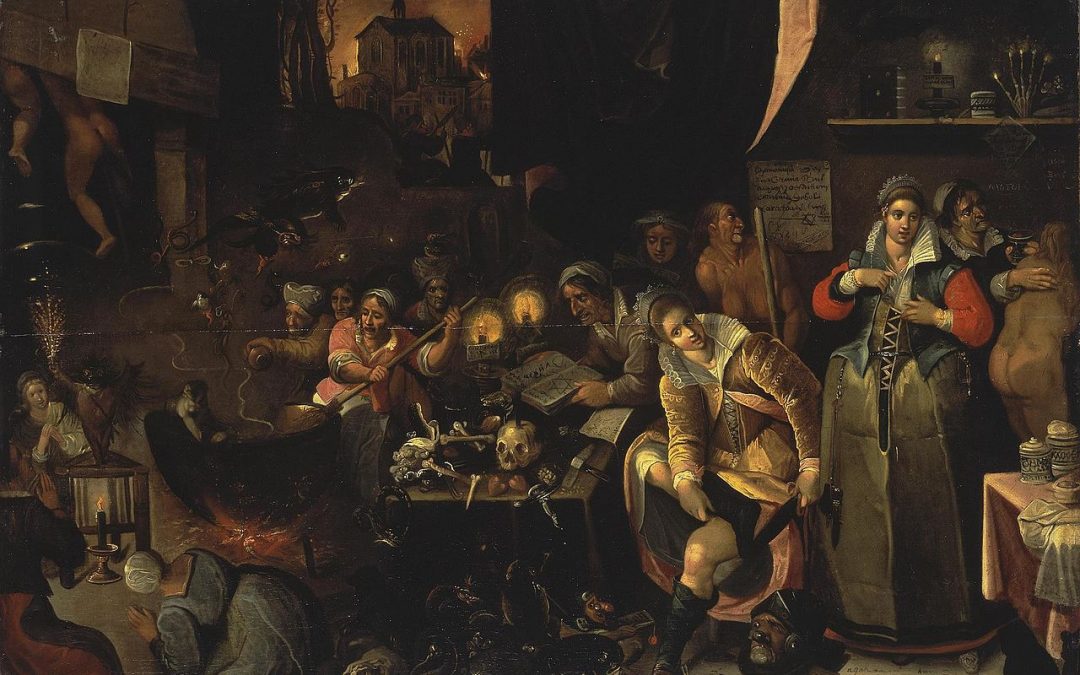The English word “sorcery” in the Bible is a translation of several Greek and Hebrew terms, but most notably it often renders the Greek word pharmakeia (φαρμακεία). To understand what “sorcery” means biblically, it’s helpful to look at both the original language, the cultural context, and the moral implications the word carried.
1. Greek Term: Pharmakeia
- Meaning: The word pharmakeia is the root of our modern words pharmacy and pharmaceutical. In ancient times, however, it referred not just to the use of drugs, but to the use of potions, poisons, and mind-altering substances, often in association with occult practices, witchcraft, or pagan rituals.
- Biblical usage:
- Galatians 5:19–21 lists “sorcery” (pharmakeia) as a work of the flesh.
- Revelation 9:21, 18:23, and 21:8 refer to sorcery in the context of rebellion against God, deception, and eternal judgment.
2. Hebrew Concepts
- In the Old Testament, terms like kesheph (כֶּשֶׁף) are used to describe witchcraft, magic, or sorcery.
- For example:
- Exodus 22:18 — “You shall not permit a sorceress to live.”
- Deuteronomy 18:10–12 condemns divination, omens, spells, and necromancy—grouped with sorcery and seen as abominations.
These practices were associated with idolatry, manipulation of the spiritual realm, and reliance on power apart from God.
3. Cultural Context
In the ancient Greco-Roman world, sorcery involved:
- Use of amulets, incantations, potions, or spells.
- Attempting to control or manipulate gods, spirits, or people.
- Often practiced by magicians, oracles, or shamans, sometimes in connection with temple worship or mystery religions.
In ancient Israel, sorcery was banned because it:
- Opposed the authority of Yahweh.
- Opened people up to demonic influence.
- Substituted manipulative spiritual power for faith and obedience.
4. Modern Implications
The biblical concept of sorcery goes beyond modern ideas of stage magic or fantasy. It refers more broadly to:
- Any attempt to gain spiritual power or knowledge apart from God.
- Deception, altered states of consciousness, or drug use connected to occult experience.
- A rebellious pursuit of hidden or forbidden knowledge, often tied to the demonic.
Thus, biblical warnings against sorcery may speak to:
- Occult practices (tarot, astrology, séances).
- Psychedelic drug use for spiritual purposes.
- Even forms of manipulation or spiritual abuse masquerading as divine.
Summary Table
| Term | Language | Literal Meaning | Contextual Meaning |
| Pharmakeia | Greek | Drugs, potions | Sorcery, occult magic, spiritual deceit |
| Kesheph | Hebrew | Magic, sorcery | Witchcraft, spells, occult practice |
Conclusion:
In Scripture, “sorcery” is never neutral or benign. It is consistently portrayed as a counterfeit spirituality, aligned with deception and rebellion against God. Understanding it in its original context helps us see why it’s grouped with sins that separate people from the kingdom of God (Gal. 5:20–21; Rev. 21:8). The modern equivalent may not always look like a witch with a cauldron—but it still appeals to the same human desire: to grasp at power, knowledge, or control without submission to the Lord.
About Featured Painting: Titled “The Witches Kitchen” by Flemish painter Frans Francken the Younger (1581, Antwerp – 6 May 1642, Antwerp). Image is public domain.


